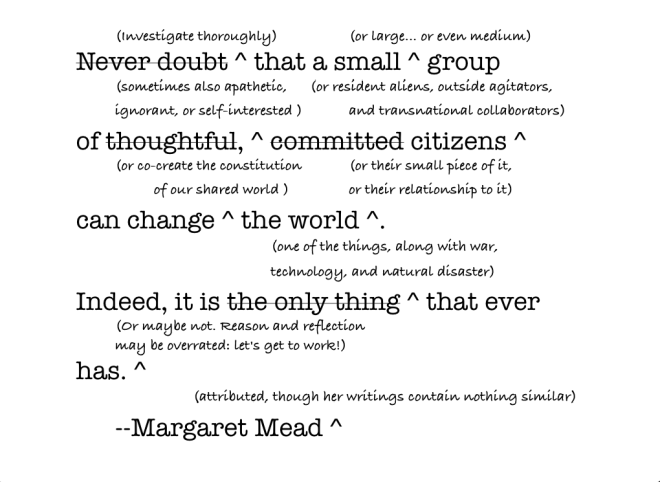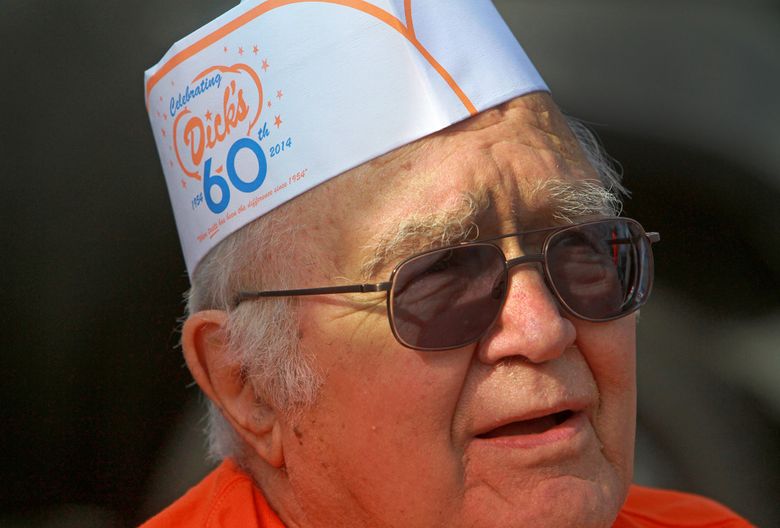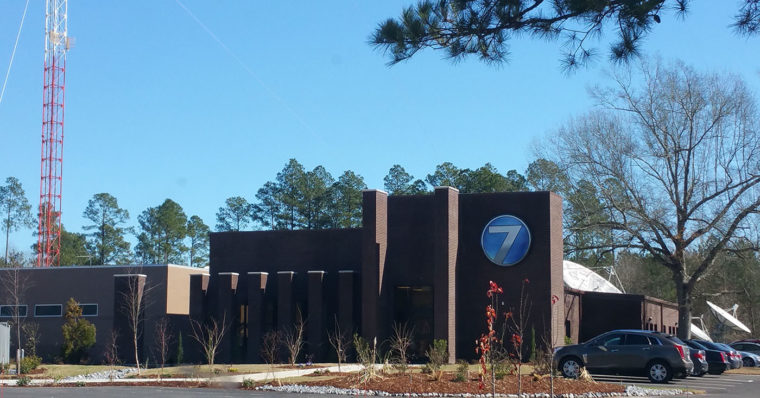Monthly Archives: January 2016
Civic Education
Method: Civic Education
Fun Interview on WDAM TV
 I had a delightful time in Hattiesburg, MS this January. My first stop while in town was at WDAM TV’s studio for the Midday News on Channel 7. I had the great pleasure of talking with Miranda Beard, who invited me to tell people about Uniting Mississippi and who announced my talk at the University of Southern Mississippi later that day, as well as the book signing afterwards. Miranda is a very impressive news professional and was very kind and welcoming.
I had a delightful time in Hattiesburg, MS this January. My first stop while in town was at WDAM TV’s studio for the Midday News on Channel 7. I had the great pleasure of talking with Miranda Beard, who invited me to tell people about Uniting Mississippi and who announced my talk at the University of Southern Mississippi later that day, as well as the book signing afterwards. Miranda is a very impressive news professional and was very kind and welcoming.
The people at WDAM were very kind. The studio was easy to find, and I couldn’t have asked for a more beautiful day to drive. I will say that Mississippi’s actually quite a big state. I had to get up at 5 and be on the road at 7 to get to Hattiesburg by shortly after 11 for this interview. It was well worth it. One of the members of the audience at my 2pm talk said that she saw me on WDAM and that she had read my interview in the Clarion Ledger earlier in January.
Here’s the interview:
Thank you to Miranda and to Margaret Ann Morgan, who set this up!
If you’re looking for a speaker for your next event, or know someone who is, visit my Speaking & Contact pages. Also, follow me on Twitter @EricTWeber and “like” my Facebook author page.
NCDD’s 2015 Year in Review
When a new year begins, we naturally tend to reflect back on the previous year. As we look back on 2015, it’s clear that it was quite a year for NCDD, and it’s inspiring to look back and see all that’s happened.
 The year of 2015 was one of many transitions. NCDD had some personnel changes as we said a fond farewell to our former Creative Director Andy Fluke and gave a warm welcome to our new Resource Curator and Social Media Coordinator Keiva Hummel (pictured at left). We also brought Ellie Boynton on board to help maintain NCDD’s website.
The year of 2015 was one of many transitions. NCDD had some personnel changes as we said a fond farewell to our former Creative Director Andy Fluke and gave a warm welcome to our new Resource Curator and Social Media Coordinator Keiva Hummel (pictured at left). We also brought Ellie Boynton on board to help maintain NCDD’s website.
In the midst of these transitions, I also made a personal transition with a move from rural Pennsylvania to Boston, moving NCDD headquarters (my home office!) closer to hundreds of our members in the process.
 NCDD also had a very dynamic year in 2015 in terms of programs and projects. 2015 saw the launch of our informal partnership with the U.S. Department of Justice’s Community Relations Service, which came out of CRS Director Grande Lum’s involvement in our 2014 national conference. Meetings were held between Community Relations Service leaders and NCDD members in Boston, Detroit, Chicago, Kansas City, New York, Dallas, and Seattle, and a few more are still in the works. The meetings were designed to be informal networking and information-exchange events, and next steps have emerged organically from the events such as a great new collaboration in Chicago, with more on the way.
NCDD also had a very dynamic year in 2015 in terms of programs and projects. 2015 saw the launch of our informal partnership with the U.S. Department of Justice’s Community Relations Service, which came out of CRS Director Grande Lum’s involvement in our 2014 national conference. Meetings were held between Community Relations Service leaders and NCDD members in Boston, Detroit, Chicago, Kansas City, New York, Dallas, and Seattle, and a few more are still in the works. The meetings were designed to be informal networking and information-exchange events, and next steps have emerged organically from the events such as a great new collaboration in Chicago, with more on the way.
 At this time last year, we began a scoping project in which we had Roshan Bliss, NCDD’s Student & Youth Outreach Coordinator for the 2014 conference (and our fearless Blog Curator!; pictured at left), conduct an online youth survey, seek feedback from our network about the role of young people in the D&D field, and host a few “focus group” calls with younger NCDDers in an effort to frame a possible NCDD youth initiative. The results gave us some good insights into how NCDD can support young people and folks who are new to the field, and will form the basis of what a Youth Program we’ll be launching this year.
At this time last year, we began a scoping project in which we had Roshan Bliss, NCDD’s Student & Youth Outreach Coordinator for the 2014 conference (and our fearless Blog Curator!; pictured at left), conduct an online youth survey, seek feedback from our network about the role of young people in the D&D field, and host a few “focus group” calls with younger NCDDers in an effort to frame a possible NCDD youth initiative. The results gave us some good insights into how NCDD can support young people and folks who are new to the field, and will form the basis of what a Youth Program we’ll be launching this year.
Our regular Tech Tuesday and Confab Calls continued to thrive in 2015 under the coordination of our wonderful Program Director Courtney Breese. As always, you can check out the archives of the confabs at www.ncdd.org/confabs and watch the Tech Tuesday videos at www.ncdd.org/tech-tuesdays.
 Our Confab Calls covered such topics as how brain science supports constructive dialogue and deliberation, ethics for facilitators, and strategies for handling latecomers in public engagement programs and disruptors at public engagement events. We talked with NCDD members Pete Peterson (about his experience running for CA Secretary of State on a “civic engagement” platform), Matt Leighninger and Tina Nabatchi (about their great new book Public Participation for 21st Century Democracy), and John Gastil (about the opportunity for organizations to host a fellow as part of the new Nevins Democracy Leaders Program).
Our Confab Calls covered such topics as how brain science supports constructive dialogue and deliberation, ethics for facilitators, and strategies for handling latecomers in public engagement programs and disruptors at public engagement events. We talked with NCDD members Pete Peterson (about his experience running for CA Secretary of State on a “civic engagement” platform), Matt Leighninger and Tina Nabatchi (about their great new book Public Participation for 21st Century Democracy), and John Gastil (about the opportunity for organizations to host a fellow as part of the new Nevins Democracy Leaders Program).
 And our Tech Tuesday events, which are designed to help practitioners stay on top of new opportunities and developments in the online engagement realm, featured innovative tools like Consider.it, Bang the Table, QiqoChat, and Common Ground for Action. In all, we served 450 people through our online events in 2015.
And our Tech Tuesday events, which are designed to help practitioners stay on top of new opportunities and developments in the online engagement realm, featured innovative tools like Consider.it, Bang the Table, QiqoChat, and Common Ground for Action. In all, we served 450 people through our online events in 2015.
2015 also saw the launch of a new partnership between NCDD and the McCourtney Institute for Democracy at Penn State to create infrastructure that will bring more young people into the D&D field. The Nevins Democracy Leaders program piloted its first two fellowship  placements in 2015 with Everyday Democracy and No Labels, and we are thrilled that 2016 will see nearly two dozen bright D&D-trained students placed with leading organizations in our field in fully funded fellowship positions.
placements in 2015 with Everyday Democracy and No Labels, and we are thrilled that 2016 will see nearly two dozen bright D&D-trained students placed with leading organizations in our field in fully funded fellowship positions.
In 2015, I continued to work very closely with the Kettering Foundation, in my role as Research Deputy and otherwise. KF’s president David Mathews took the time to write a special message to the NCDD community about the  historic opportunity we have right now to “find the public voice that’s missing.” I worked particularly closely on Kettering’s annual A Public Voice event at the National Press Club. Also be on the lookout for a fascinating report on the strategies that public engagement practitioners use to develop productive relationships with public officials over time — a collaboration between NCDD, Kettering, and the Jefferson Center.
historic opportunity we have right now to “find the public voice that’s missing.” I worked particularly closely on Kettering’s annual A Public Voice event at the National Press Club. Also be on the lookout for a fascinating report on the strategies that public engagement practitioners use to develop productive relationships with public officials over time — a collaboration between NCDD, Kettering, and the Jefferson Center.
As we look forward to the coming year, we hope for more and more opportunities like our partnerships with the Kettering Foundation, the McCourtney Institute at Penn State, and the US DOJ Community Relations Service — opportunities that allow us to utilize the infrastructure we’ve built up to serve the broader field. We look forward to launching our youth program, distributing new materials, continuing to provide quality online programming for our community, and of course, hosting the 2016 National Conference on Dialogue & Deliberation this October in Boston, MA!!!
NCDD’s work is funded mostly by members’ dues and small donations. If you want to support all of the great work we do, please consider making a tax-deductible donation by visiting www.ncdd.org/donate or renewing or upgrading your membership at www.ncdd.org/renew.
We look forward to enjoying the coming year with all of you, no doubt feeling constantly inspired by the important, innovative work you all are doing.
The Symmetry of Rival and Anti-Rival Goods
In DC over the last few days, it was frequently the case that the side-walks were cleared and the roads were not. Yet the roads are plowed by paid contractors driving massive machines while the sidewalks are usually shoveled by residents working for free (or neighbors paid by the residents individually.) What gives? Why do the paid, centrally managed snow removal contractors work so much slower than the the ordinary, non-professional residents?
Put another way, why was I able to convince my neighbors we could (and should) shovel our street out when the plows didn’t come? When they realized that others were doing it, they realized that rather than clear out the whole street, they’d just need to do their small part. They were even willing to shovel the few stretches of homes whose owners didn’t join us, because we couldn’t traverse that territory without helping the slackers.
I’d argue that this is a classic case of common pool resource management. But a shoveled sidewalk is a strange sort of common pool resource: it’s not like fisheries or irrigation where the more one person uses the resource, the less there is for others. That is, it’s not precisely “rivalrous,” one of two conditions required for a common-pool resource to flourish. In fact, the more people shovel their sidewalks, the better off each individual with a shoveled sidewalk is. This is what economists call “anti-rivalry” and is frequently linked to network effects: the more people use email or Facebook, the more useful email or Facebook are.
The other condition for a common-pool resource is that the resource must be “non-excludable.” Shoveled parking spaces in DC are frequently protected in this way: a chair or a trash can signals that by dint of shoveling the spot it has become my exclusive property for the duration of the snow.
Parking spots are excludable (even if only through threats) and they’re rival: only one of us can park there at a time. Thus, the standard matrix analysis calls them private goods. This is tricky: the street below the snow was a public good, usually, but the act of shoveling seems to give someone the sense that they have a private ownership interest in it. (I mixed my labor with it!) Yet there’s never enough parking spots unless we share them, and short-term visitors are in an especially difficult situation.
You’d think that rivalry and anti-rivalry would be as opposed as that “anti” suggests. But from the perspective of the structures of ownership and distribution, it does seem like anti-rival goods work on the same model as other common pool resources that are rival: thus Lawrence Lessig used anti-rivalry to argue for free open source software, which is how much of the backbone software of the internet was developed. Rather than apportioning a scarce resource, an anti-rival network has to distribute it as widely as possible to realize maximal benefits:
It’s not just that code is non-rival; it’s that code in particular, and (at least some) knowledge in general, is, as [Steven] Weber calls it, ‘anti-rival’. I am not only not harmed when you share an anti-rival good: I benefit.
This continues to produce the standard insider/outside dynamic of a common-pool resource management system, but replaces exclusivity with evangelism. The plow system is just another version of what Elinor Ostrom called “crowding out”:
Citizens are effectively told that they should be passive observers in the process of design and implementation of effective public policy. The role of citizenship is reduced to voting every few years between competing teams of political leaders. Citizens are then supposed to sit back and leave the driving of the political system to the experts hired by these political leaders.
Some of what makes anti-rival goods work is peer pressure: when we were shoveling the street, a few parents came out and confessed apologetically that they couldn’t leave their children alone to come help. The tone of their apologies suggested that there was some guilt involved. But a lot of it was that a simply impossible job became imaginable if each neighbor was able to see that they’d personally benefit: as the shoveled portion of the street expanded, the neighbors in the middle of the block came outside to shovel still farther, since they’d only have a little bit more to do to enjoy the benefits.
The plows came Wednesday afternoon and expanded our cleared lanes. But we had already escaped!

Remembering Dick Spady
Earlier this month, an important figure in the dialogue and deliberation field passed away at age 91. Many of you know Dick Spady’s son John Spady well, as John has attended every NCDD conference, been active on the listserv, and launched the National Dialogue Network after winning a Catalyst Award from NCDD in 2012. The Forum Foundation that Dick founded showed its support of the dialogue and deliberation community by consistently sponsoring the NCDD national conferences.

Photo credit: Seattle Times
When I checked in earlier this week about his father’s passing, John reminded me that he had told his father about the first NCDD conference in 2002, and was glad to be there with him as he set up his table about the work of his Forum Foundation, his new book The Leadership of Civilization Building, and his Opinionnaire® Survey tool to understand the “symbolic dialogue” among diverse groups of people. John recollected how, in fact, “symbolic dialogue” was included in the glossary of the first NCDD conference handbook (actually a 3-ring notebook!).
John is now actively curating his father’s civic legacy and has even released a first version of an Opinionnaire® plugin for WordPress (http://bit.ly/Opinionnaire) — developed by John’s (now nonprofit) National Dialogue Network. He also commissioned a small book about his father’s “Visions and Values” that can be read on Amazon.com here: http://amzn.com/0615953832.
Dick Spady will be deeply missed in our field, and our heart goes out to John and his other family members during this difficult time.
Please read the remembrance piece by Kathleen O’Connor below or find the original here.
We Have Lost a Remarkable Man
Dick Spady may not be a national icon, but he was a giant man of vision and values. He co-founded Seattle’s legendary hamburger company – Dick’s Drive In. He believed in people’s inherent quality and dignity. This was reflected in all his work from covering health care for all his employees to his passion for civic engagement.
In the fast foods industry notorious for providing low pay and poor to non-existent benefits, he paid for health care benefits for all his employees – full and part-time. But that’s not all.
If college students worked 20 hours per week, Dick’s covered their tuition costs. If some employees did not go to college, the company covered the costs of child care. Employees could take time for community activities and the company would cover that time. He not only invested in his company and his employees, he invested in the community as well through his employees’ service. This all in addition to his personal civic contributions. There is also a box on the counter at each Dick’s so customer can donate spare change for community organizations.
Dick’s passion was civic engagement – assuring people had a voice in community affairs at all levels. He devoted his non-business life to consensus building and civic engagement. Passions we deeply shared.
When we founded CodeBlueNow! in 2003 to assure the public had a voice in shaping the health care system, Dick and his family donated a new survey tool they created called the Opinionnaire. Unlike most survey tools, among other things, it let people object to a question and abstain from answering a question. We called our Opinionnaire tool the Pulse. We used it to survey views on health care during the 2008 presidential election in both Iowa and Washington state – red and blue states. We verified those findings with professional market research and the findings were the same – that there is common ground on many issues.
We found this considerable common ground when we listened to what the people had to say and re-framed the discussion from the political to the personal.
Dick’s life is a shining example of what can be done, that believing in people matters, that employees are actually a good investment, and that if you want a successful business you must treat your employees with dignity and respect and provide for their well-being. These practices did not drive his business into the ground financially – it flourished.
It is with the deepest sorrow that I share the news of the death of this remarkable man who gave so much to so many. All he asked in return was that we let people have the voice they so amply deserve.
Dick died on January 10th at age 92: www.seattletimes.com/seattle-news/obituaries/dick-spady-co-founder-and-namesake-of-dicks-drive-in-dies-at-91.
Rest in Peace, Dick. Job well done.
Kathleen
You can find the original version of this post from Kathleen O’Connor’s O’Connor Report at www.oconnorreport.com/2016/01/we-have-lost-a-remarkable-man.
Participatory Planning Process: ‘Region of Consciousness’ Austria
Communications Job Opening at Everyday Democracy
We encourage our NCDD members to take note that Everyday Democracy – a long-time NCDD member organization –  is hiring for a Communications Fellow. We’re positive that there are many folks in our network who would be a great fit for the job, so we encourage you to consider applying!
is hiring for a Communications Fellow. We’re positive that there are many folks in our network who would be a great fit for the job, so we encourage you to consider applying!
Everyday Democracy is based in Boston, MA and this position is slated to be a year-long opportunity.
Here is how the EvDem team describes the position:
Everyday Democracy is seeking someone interested in helping to spread the word about people changing their communities and being part of an organization where we pay special attention to the connection between racial equity and the issues communities face.
Working in a flexible and creative environment, the fellow will have opportunities sharpen their communications skills during the one-year term. The Communications Fellow will report to the Communications Manager and will be a critical support person to the communications team.
During the fellowship, there will be opportunities to work with other internal teams on local and national initiatives. When possible, the fellow will have the opportunity to visit local communities to collect stories and see change happen on the ground. However, majority of the work will be done behind-the-scenes creating stories, evaluating our communication tools, and developing marketing plans with the communications team.
Applications are due by March 11, 2016, so make sure not to wait too long to apply. You can find out more about the position at how to apply by clicking here.
Good luck to all the applicants!




